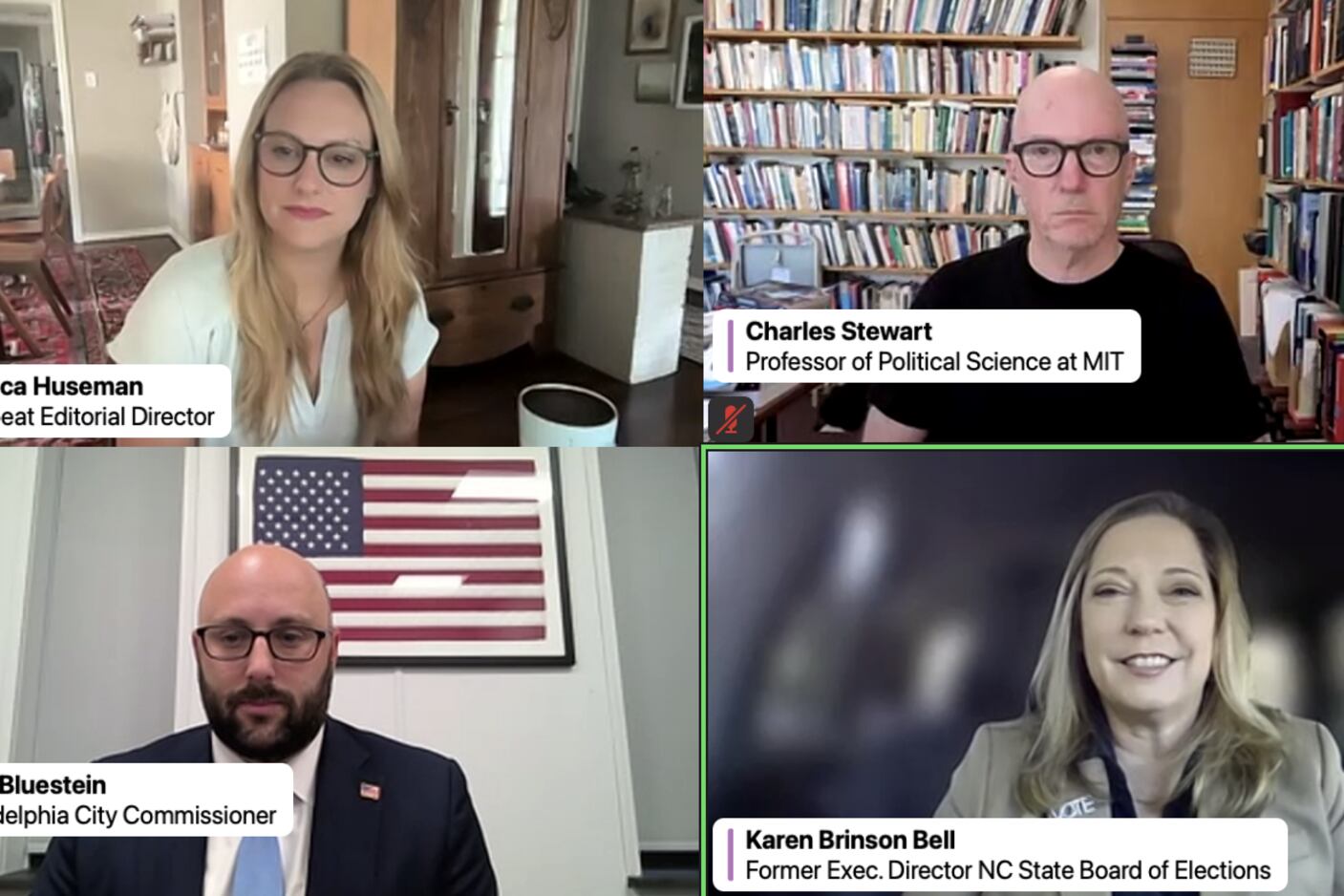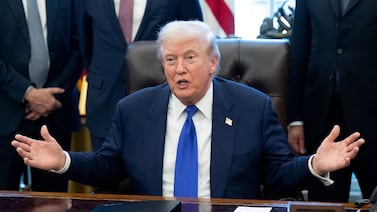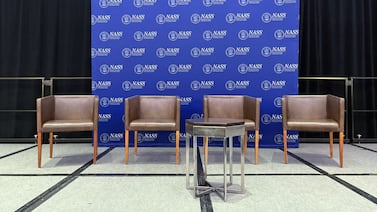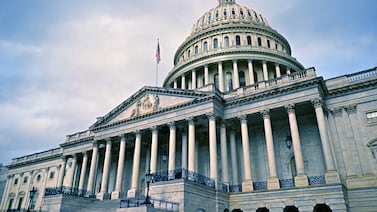Votebeat is a nonprofit news organization reporting on voting access and election administration across the U.S.
This news analysis was originally distributed in Votebeat’s free weekly newsletter. Sign up to get future editions, including the latest reporting from Votebeat bureaus and curated news from other publications, delivered to your inbox every Saturday.
Public trust in elections is the key to turning out voters — and to accepting the results when an election is done. So how do you build it?
Votebeat this week sat down with election expert and Massachusetts Institute of Technology professor Charles Stewart; Philadelphia City Commissioner Seth Bluestein; and Karen Brinson Bell, the former executive director of the North Carolina State Board of Elections to talk about the factors that drive trust in elections.
The conversation and online forum were moderated by Votebeat Editorial Director Jessica Huseman.
Stewart, who has studied trust extensively as part of his work with MIT’s Election Data and Science Lab, pointed out that for partisan voters, the level of trust tends to shift depending in part on whether their party won the last election.
But a July report Stewart authored about the 2024 election found that overwhelmingly, people are very confident in their own vote being counted correctly, and 60% of respondents feel very confident their local government is counting votes correctly as well. That’s partly because most people have a good experience when they vote, Stewart said.
But just 53% of people have the same level of confidence in elections across their state, and only 37% of respondents reported being very confident in ballot counting nationally, though 46% reported being “somewhat confident.”
“That’s really where voters rely on politicians, people in the media, to interpret what’s happening,” Stewart said Friday. “With the polarization of new media, we’re seeing much more partisan inflection into confidence in elections.”
Bluestein, a Republican election official in a predominantly Democratic city, said he’s seen that very effect. Even before polls closed in 2024, Donald Trump was suggesting without any evidence that there was cheating happening in Philadelphia, Bluestein said, forcing local leaders to defend against that in real time.
“We have to do a lot of work on the ground as election officials to try and counteract that,” he said. “It takes leadership from both sides to have cooler heads and to actually look at what’s really happening.”
The importance of transparency and communication
One forum attendee asked the panelists whether people actually want to know more about elections, and whether more information would improve trust.
By and large, Stewart said, the general public isn’t interested in the minutiae of elections. But those who do care — politically active neighbors, pastors, local precinct captains — tend to be vocal members of their communities who then shape the opinions of others.
Inviting those people in for explanations, facility tours, and other conversations can have tradeoffs, he said, but studies have found that it does bolster local trust.
Brinson Bell, from North Carolina, said efforts to reach people where they are, such as social media hashtags, person-on-the-street style videos, and resources distributed through county officials, were effective in helping people understand the complex issues without requiring them to dive into what would “make for about a 4-inch law book on how you have to conduct elections.”
Another thing officials can do is to make sure people know that many parts of the process are open to the public. Brinson Bell pointed to the provisional ballot process in North Carolina as one example of a transparent process.
Those meetings are public, offering anyone who wants it a look into how local officials determine which provisional ballots should be tallied.
The panelists agreed that direct engagement with the public is a priority in the period leading up to the 2026 midterms.
“The more people you get involved, whether it’s as poll workers or volunteers at the election warehouse, the more people who experience running elections, the better we are,” Bluestein said.
Hayley Harding is a reporter for Votebeat based in Michigan. Contact Hayley at hharding@votebeat.org.




